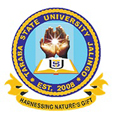The Challenges of Teaching and Learning History in Some Selected Secondary Schools of Taraba State, 1991 – 2011
Atando Dauda Agbu, PhD
&
Yahya Adamu
Department of History and Diplomatic Studies, Faculty of Arts Taraba State University, Jalingo, Nigeria
Abstract
Itisobviousthat,thechallengesofteachingandlearningHistorykeptgrowingsince 1980sfollowingtheintroductionofSocialStudies/Governmentsinourschools.This study examines the challenges of teaching and learning history in some selected secondary schools in Taraba State, 1991 – 2011. This is in view of the crisis of relevance of the subject matter as reflected in the glaring shortage of teaching materials, inaccessibility to historical site/excursion, poor timing of history lessons, lackofencouragement,volumeofhistorywork,amongothers,arethecorechallenges of teaching and learning history in some selected secondary schools inTaraba State. Through historical multidisciplinary approach and random-sampling of views/opinions, the study concludes that, concerted effort and genuine approach by government, Historical Society of Nigeria, Parents TeachersAssociation, would no doubtamelioratetheabovementionedproblems.Moreso,itishopedthat,thechapter will contribute to the body of knowledge/emerging issues regarding historical scholarship.
Introduction
Modern Academic historical studies in Nigeria started since the colonialperiod.However,theteachingandwritingofhistorythenwas Eurocentric in nature and biased against local History. The study of historyand,indeed,Nigerianhistoryasadisciplinebegantotakeshape between the end of the 1940s and in the 1950s. The most remarkable epoch in the study of Nigerian history was the emergence of the
